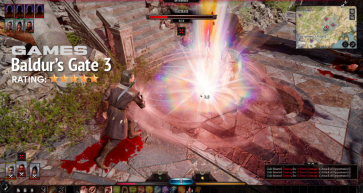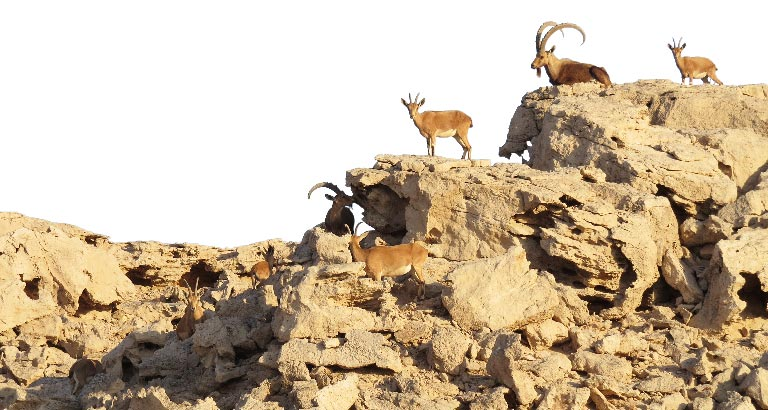
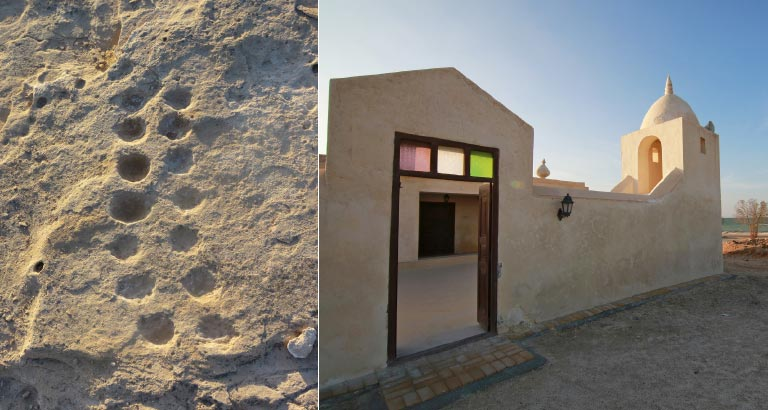
A trip to Hawar Islands is a convenient option for when you need a quick and low-cost change in scenery.
When the going gets monotonous, it calls for a temporary check-out from a repetitive routine. But when you have to take a flight out to get to anywhere else in the world, except to our immediate neighbour, you might have to think twice about it.
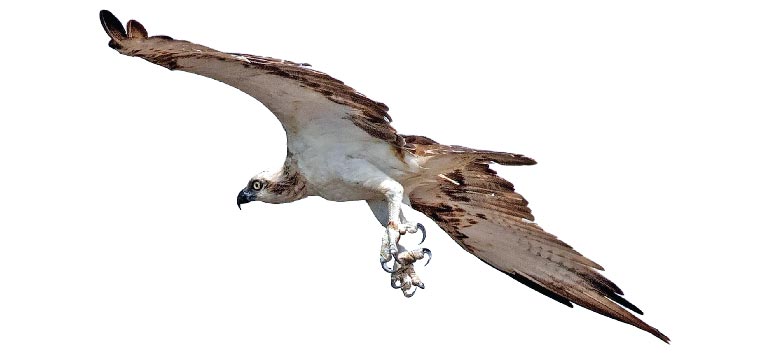 Fret not; the idyllic islands of Hawar are just a short boat ride away and offer a relaxing time-out from everyday life. This archipelago of 36 small islands, situated around 20km southeast of mainland Bahrain, spans approximately 52sq/km and constitutes more than seven per cent of the total land of the Kingdom. Hawar is considered to be the largest island after the mother island, Bahrain, and though there are 36 isles in the group, many of the smaller ones are simply spots of sand and shingle on bedrock.
Fret not; the idyllic islands of Hawar are just a short boat ride away and offer a relaxing time-out from everyday life. This archipelago of 36 small islands, situated around 20km southeast of mainland Bahrain, spans approximately 52sq/km and constitutes more than seven per cent of the total land of the Kingdom. Hawar is considered to be the largest island after the mother island, Bahrain, and though there are 36 isles in the group, many of the smaller ones are simply spots of sand and shingle on bedrock.
Bahrain’s commitment to the preservation of the naturally beautiful atoll was formalised in 1995 with a royal decree to preserve and protect the islands and their marine surroundings as a wildlife sanctuary.
 And with good reason, as it is a haven for the region’s natural fauna. The islands lie on the migration path of about 300 types of birds, of which some are endangered species. It is home to one of the largest breeding colonies of Socotra Cormorants and part of the second largest herd of dugongs. It is also a breeding area for the endangered sooty falcon, or, as it is referred to in Bahrain, the Hawar falcon (Shriyas Hawar).
And with good reason, as it is a haven for the region’s natural fauna. The islands lie on the migration path of about 300 types of birds, of which some are endangered species. It is home to one of the largest breeding colonies of Socotra Cormorants and part of the second largest herd of dugongs. It is also a breeding area for the endangered sooty falcon, or, as it is referred to in Bahrain, the Hawar falcon (Shriyas Hawar).
The clean sands of the land mass carry a fascinating history from centuries ago. In the late 1700s, a tribe known as Dawasir from Wadi (valley) Dawasir in Saudi Arabia came to Hawar and established villages on the coasts of the island. The largest north village consisted of about 20 stone houses and visitors can tour the archaeological remains of the abandoned hamlet.
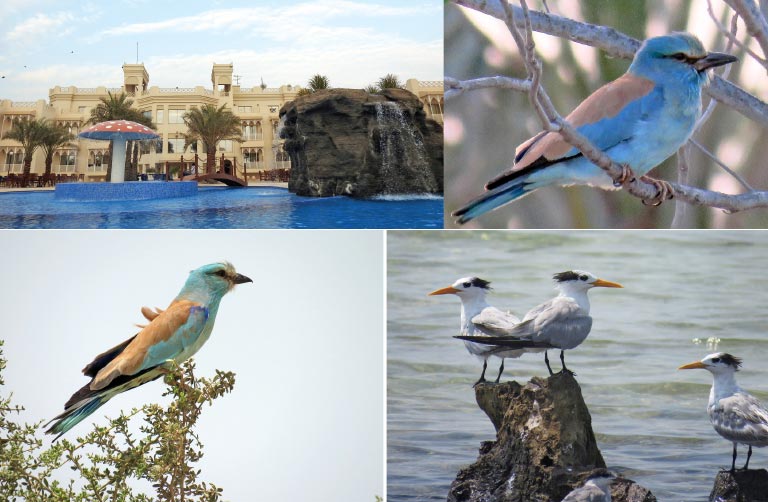 A choice of eco-friendly bus tours enables sightseers to witness wild animals such as gazelles, oryx, ibex and spiny-tailed lizards (thab) with trained guides who explain the history and archaeology of Hawar along the way.
A choice of eco-friendly bus tours enables sightseers to witness wild animals such as gazelles, oryx, ibex and spiny-tailed lizards (thab) with trained guides who explain the history and archaeology of Hawar along the way.
Other activities available to visitors include a guided safari of the whole island to see its pristine coastlines, or seasonal options such as dugong watching, and bird-watching for various unique feathered friends. Thanks to this, a high number of photographers and ornithologists have visited Hawar from around the world.
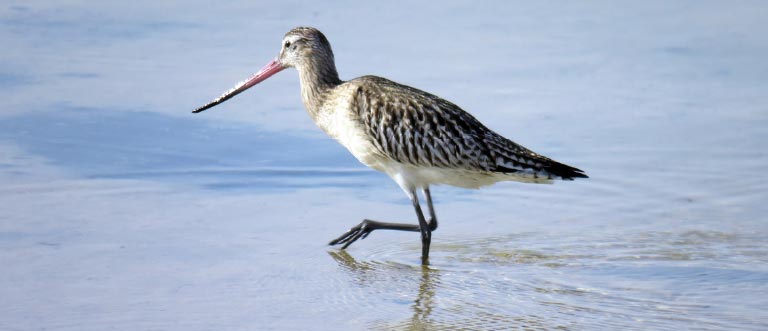 The islands regularly host citizens of Saudi Arabia, Kuwait, countries in Europe and Americans, who come specially to see the colonies of cormorants in their breeding seasons, and catch a precious glimpse of endangered falcons or witness the migration of a variety of birds in spring and autumn.
The islands regularly host citizens of Saudi Arabia, Kuwait, countries in Europe and Americans, who come specially to see the colonies of cormorants in their breeding seasons, and catch a precious glimpse of endangered falcons or witness the migration of a variety of birds in spring and autumn.
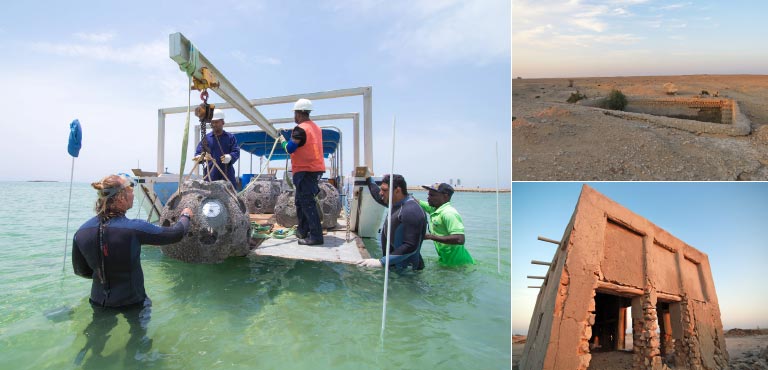 Visitors can enjoy environmentally-sustainable water sports activities like snorkelling in the crystal-clear waters that lap against the shoreline. However, as the islands are eco-protected, no fishing tours or jet skiing is permitted. The action-packed mountain bike tour around the island is a popular attraction. This year, three-wheel electric bikes will be available for adventurers to explore the area.
Visitors can enjoy environmentally-sustainable water sports activities like snorkelling in the crystal-clear waters that lap against the shoreline. However, as the islands are eco-protected, no fishing tours or jet skiing is permitted. The action-packed mountain bike tour around the island is a popular attraction. This year, three-wheel electric bikes will be available for adventurers to explore the area.
Visitors can stay overnight at the Hawar Beach Hotel, with a package which includes three meals. The hotel offers various room types including disabled accommodation. Lunch and all activities within the hotel’s premises are included in the price for a day trip. In-house and day-trip guests are able to buy beverages from the hotel.
 However, as this is a protected area, only authorised personnel from Hawar Beach Hotel, with permission from the authorities, are permitted to conduct tours and enable public access to the islands and their surroundings. Private boats are allowed to dock at two ports only; the hotel jetty and the chalet jetty, while other areas are restricted.
However, as this is a protected area, only authorised personnel from Hawar Beach Hotel, with permission from the authorities, are permitted to conduct tours and enable public access to the islands and their surroundings. Private boats are allowed to dock at two ports only; the hotel jetty and the chalet jetty, while other areas are restricted.
Needless to say, the waters around these exclusive islands are rich in marine flora and fauna. To boost the underwater ecosystem, around 170 artificial reef balls, some donated by the Rotary Club of Sulmaniya, the Bahrain Bayan School and Ibn Khuldoon School, have recently been lowered just off the coastline in the shape of a Flower of Life design. It is hoped that this will create a sanctuary for new oceanic life, as well as attract existing aquatic species from the surrounding waters. Fishing is prohibited so as to allow marine life to thrive in a vibrant underwater world, which will make the location an ideal snorkelling spot right off the beach.
Call 17 849-111.



